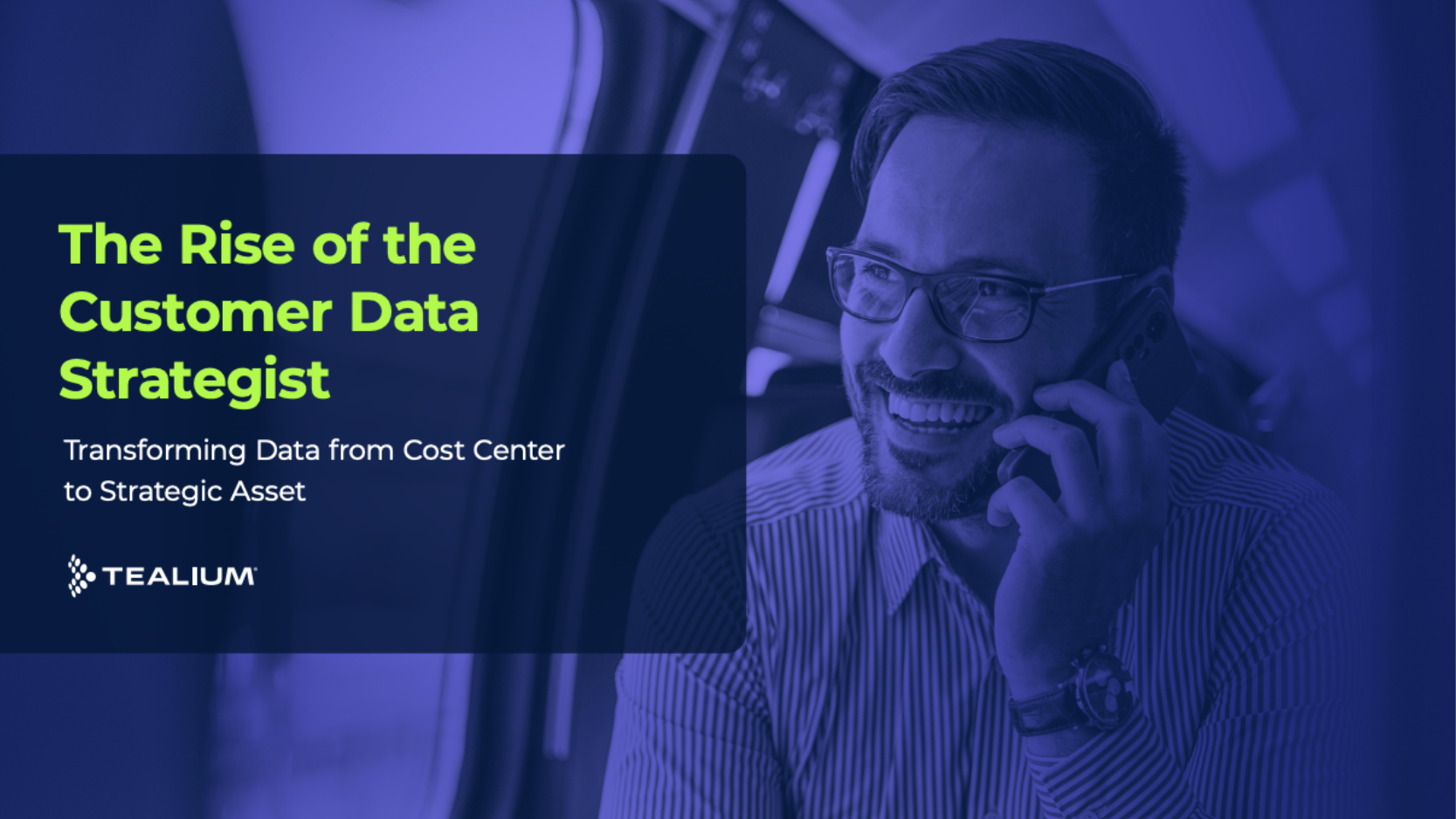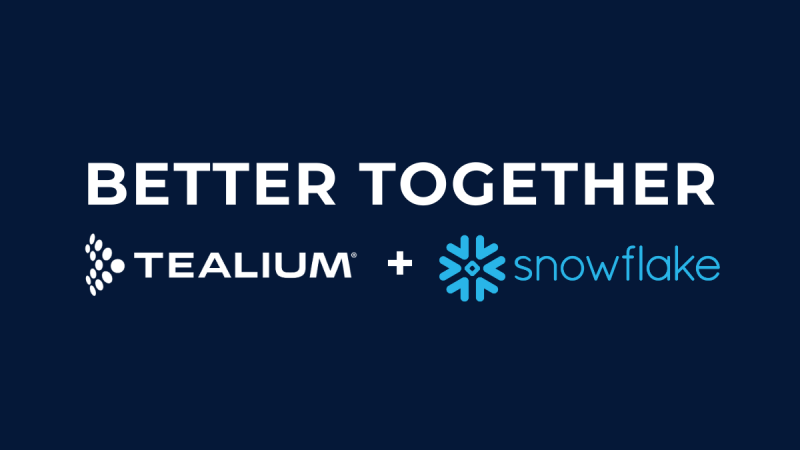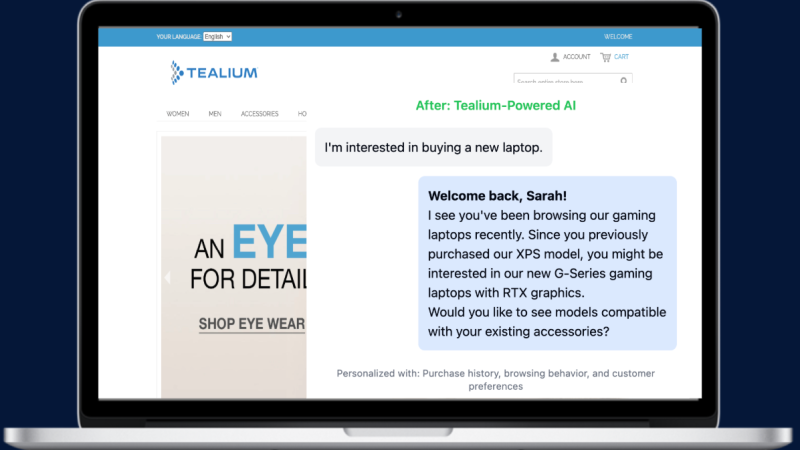As businesses strive to optimize revenue, reduce costs, and mitigate risks, the concept of the composable Customer Data Platform (CDP) has gained traction. While these designs offer value in various aspects, the most critical area of composable architectures involve real-time detection, processing and validation of customer data and the consent preferences that drive an organization’s Data Strategy.
The largest tranche of value to organizations will be realized when acquiring consent via a professional and engaging Value Exchange between a business and its clients. In this blog post, we will explore the unmatched advantages that Tealium provides for this initiative, making it the unrivaled choice for businesses across industries.
What is a Composable Customer Data Platform?
Composable Customer Data Platform architectures encompass a software design approach that emphasizes the ability to build systems with independent, reusable components or services. These components work through APIs and microservices that deliver value in their portability and optimal cost structures. In essence, composable architectures should introduce the right balance of flexibility, security, and stability in operating the overall system itself, alongside the process and personnel. In the context of a CDP, a composable architecture allows businesses to assemble and integrate various data management and customer engagement components, choosing the best-in-class solutions for each specific function.
CDPs have three important areas of automation and governance to consider when applying composable principles: Data Collection, Profile and Audience management, and Activation capabilities. Aligning with a composable strategy for the CDP, organizations can mix and match components in these areas so that the aforementioned balance is achieved. This allows for greater agility, scalability, and customization, as businesses can tailor their CDP stack to their specific needs, adding or replacing components as their requirements evolve. In today’s constantly changing environment within Digital Marketing, AdTech and Privacy Regulations, having this type of flexibility is critical to maximizing revenue-generating use cases while realizing maximum operational ROI.
Does Tealium Offer a Composable Customer Data Platform?
Tealium’s CDP offering is designed to deliver on those principles. It is able to seamlessly integrate with:
- Data Collection Solutions: There are benefits to deploying Tealium iQ Tag Management and Tealium EventStream as they deliver rapid time to value outcomes and are fully modernized to integrate in real time with the wide variety of identity providers in Digital Marketing and AdTech today. However, there are certainly many other sources of customer data that are already optimized to connect to a CDP using APIs and File-based approaches that should also be leveraged, and Tealium’s CDP provides the necessary APIs to connect to any system that is relevant in the strategy.
- Consent Management Solutions: Tealium’s recent innovation with many of the world’s most popular Consent Management Platforms like OneTrust allows Legal and IT teams to leverage the work they’ve already done in those platforms to apply to the Tealium data collection design. Cookie Banners, Data Subject Access Request processes, and enforcement of consumer consent is now capable of being included in the composable strategy. An intuitive wizard-based approach to connecting these CMPs to Tealium is a popular choice for composable delivery.
- Data Storage Solutions: Tealium offers the ability to seamlessly connect any Data Management Platform or Cloud Storage Provider to receive the Event, Profile and Audience data in real time, or in batch. While the Tealium CDP will retain the data it needs to operate its use cases, these storage destinations are completely flexible pieces to consider. Most Tealium clients have several alternatives to consider, and the choice of data persistence (and Data Residency) is completely composable.
- Activation solutions: Tealium leads the industry in many areas with respect to the Activation marketplace that delivers modern Conversion API solutions, direct-action triggers into all of the most popular Digital Marketing platforms, and fully incorporates the modern identity strategy that many partners like The Trade Desk and ID5 contribute to connect the customer journey across the Open Web. Tealium’s Identity strategy is therefore also composable of many federated entities that work together to deliver value, and using a no-code interface ensures control and security.
The Business Case for Tealium’s Composable Customer Data Platform
Ultimately, companies turn to automation when revenue is generated, costs are reduced, and Risk is mitigated. That’s what the promise of applying Composable Customer Data Platform principles is striving for, and so it follows that we look at the first component in the architecture: collecting the initial consent and the subsequent data signals from all touchpoints. This data collection is the foundation of a modern Data Strategy. It is when data first surfaces on devices and systems, when identity and privacy preferences first come together due to a stellar Value Exchange between Brand and Consumer, that the most important Composable decision an architect can make will be presented to them.
Real-time data collection and identity resolution on the device — not after the fact in a Data Warehouse — is the ultimate Value anecdote for any brand in any vertical, but especially Healthcare, Financial, and Pharma. This is where the risk of non-compliance to CPRA, GDPR, and all the other Global Privacy Regulations is mitigated down to its most minimal level and the largest tranche of value can be claimed by the business. It is where HIPAA-compliant customers must address recent OCR Guidance that mandated concise and predictable data governance. These kinds of things cannot be done by simply shifting Compute and Storage to a larger system; in fact, you’ll likely cause the problem to proliferate. The solution belongs in the area of Data Collection — sound system architectures that comply with Data Regulations and optimize marketing motions depend on it.
Tealium is the only automated data collection technology on the market to provide an enterprise-class composable design (API-based, no-code, and you choose your CMP interface) with Consent Management platforms today. This means that your device-based data collection (Tealium iQ Tag Management) and Cloud-based data collection (Tealium EventStream) are now seamlessly integrated with your choice of Consent Management provider, including the industry-leading One Trust Cookie Manager.
And while certainly the measurement and reporting that is required to maintain delivery excellence is part of the solution, a CDP is not limited to Data Warehouses to achieve this. While the Warehouse role is indeed critical, the data supply chain which fuels it in real time is equally important. Automated Data Collection that incorporates Consent is the key to achieve value in Digital Marketing, AdTech and Analytics initiatives. Tealium’s CDP solution offers all of the modern techniques that require a real-time and batch approach to work in concert for this purpose.
Tealium has been at the forefront of addressing privacy regulations such as CPRA and GDPR since its inception. This commitment to privacy and consent management is exemplified through strategic partnerships with industry leaders like OneTrust. By collaborating with these trusted entities, Tealium has established itself as the most reliable and trusted CDP available in the market today.
In the ever-evolving landscape of data-driven businesses, privacy and consent management are of paramount importance. Tealium’s composable architecture, seamlessly integrating data collection and consent management, distinguishes it from traditional CDPs. With Tealium, businesses can forge robust relationships with their customers, ensure compliance with global privacy regulations, and unlock the true potential of their data. By investing in Tealium, organizations position themselves at the vanguard of innovation; maximizing revenue, reducing costs, and mitigating risks — all while continuing to benefit from new innovations across the multi-channel that are driving increased revenue streams for businesses that are ready to move forward with a modern First Party Data Strategy.







